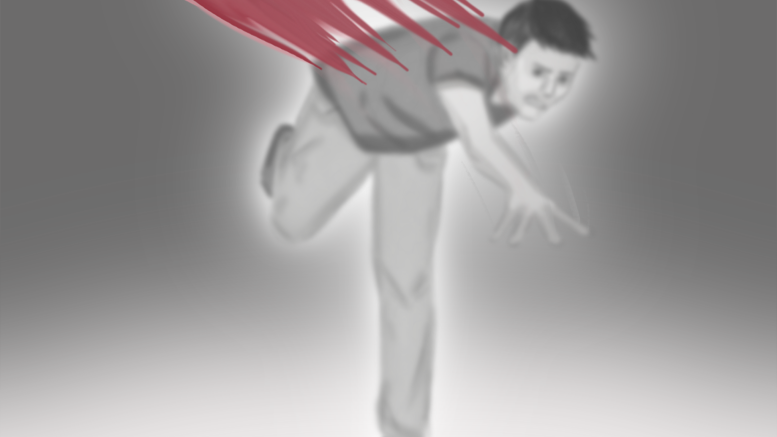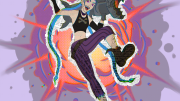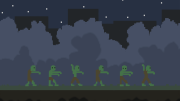While gamers are, in my opinion, among the most morally malnourished subgroups in the world, patrolling the internet and being hateful to someone for having an opinion you disagree with is unfortunately universal behaviour in fandom.
This behaviour has recently come to prominence in the critical conversation surrounding The Legend of Zelda: Tears of the Kingdom (TOTK). Near unanimous praise from critics has not been sufficient for many avid fans of the game.
Released on the Nintendo Switch as a sequel to 2017’s The Legend of Zelda: Breath of the Wild, TOTK is looming large as a major pop culture moment this summer. For perspective, the game surpassed 10 million copies sold in the first three days after launching in May. That commercial success is mirrored by its critical acclaim, as the game’s Metacritic score is resting at a crisp 96 out of 100.
A small minority of reviewers have scored the game less than perfectly, and the comments sections on these reviews online are filled with users writing angry responses that vary from accusations that the reviewer is incompetent to caustic personal attacks.
Slant Magazine’s review saw a wave of outraged comments after rating TOTK three out of five stars. In reaction to veteran games critic James Stephanie Sterling awarding the game a score of seven out of 10, commenters began writing outright transphobic slurs on their website.
Being a beloved pop culture artifact, like any of Taylor Swift’s albums, TOTK inevitably ended up at the centre of a pack of rabid stans that stabs at the jugular of anyone who approaches it. I think Taylor Swift’s songwriting is digital detritus mashed together with the sticky residue left by a marketing executive’s fingers, and I love Banana Yoshimoto’s books. Yet I won’t call anyone names for saying the former is good and the latter is bad.
If critics try to articulate a flaw in a work of art, no amount of positive feedback can quell the outrage they provoke so long as one dissenting voice exists.
Dissent does seem to be the problem. We have drifted into a collective state of mind wherein we interpret popularity as a sign a work of art is flawless, and if someone disagrees, we react to them as we do to people who question fundamental properties of the universe. One commenter explicitly compared Slant’s review to a flat-earther argument, actually.
Many of the comments responding to Sterling argue that the dozens of perfect scores from other review outlets are evidence that Sterling is wrong. This is really troubling. If we accept that popularity and consensus are synonymous with perfection, quality or merit, we are essentially arguing that popularity is natural and that disagreement is unnatural.
Maybe equating popularity with quality feels intuitive, but what is popular changes all the time.
I was recently reading literary critic Northrop Frye’s book Anatomy of Criticism. I think he puts this point best when he writes “there is no real correlation either way between the merits of art and its public reception.” Frye sees criticism as a way of making sense of the arbitrary relationship between public reception and a work of art. He sees criticism as a part of “cultural memory” in that way.
For Frye, it’s not that popular art has no merit. I think he means that having merit does not necessarily lead to popularity.
The other side of the conflation between popularity and quality is a sort of depressing idea that obscurity is deserved. Artists who toil thanklessly with small, slightly detached audiences for years to decades seem like they lack merit until they do break out under this way of thinking. After all, if they were good, they would be popular.
Truly, nothing is more humbling than spending hundreds of hours on a project only for your own family to be too busy to engage with it. Imagine if people took the time they were spending cyberstalking contrary reviews of global pop culture smash hits to support an independent artist whose dad can’t remember the name of her YouTube channel.
I will now catastrophize and jump straight to talking about fascism. In 1937, the lead propagandist of the Nazi party, Joseph Goebbels, banned art criticism on the justification that it was a sign of “Jewish influence.”
I’m not arguing that being anti-criticism is in and of itself antisemitic or fascistic. However, the furious tone of some responses to negative criticism hints that many people do not understand why art criticism is important and do not care to. That incuriosity benefits a specific way of organizing society, one that does not allow for liberated people with different points of view.
Really the criticisms of reviewers who said negative things about TOTK are that those critics are not saying the exact same thing that everyone else already said. Why is that a bad thing?
The point of critics of film, literature, painting, video games, music and theatre, among others, is they are specially trained to ask particular questions about works of art and come equipped with a specific knowledge background.
Critics draw out important details others fail to notice or don’t realize they ought to care about. At the very least, the advantage of critics, when they’re doing their jobs, is they disrupt the terrifying boredom of echo chambers.





